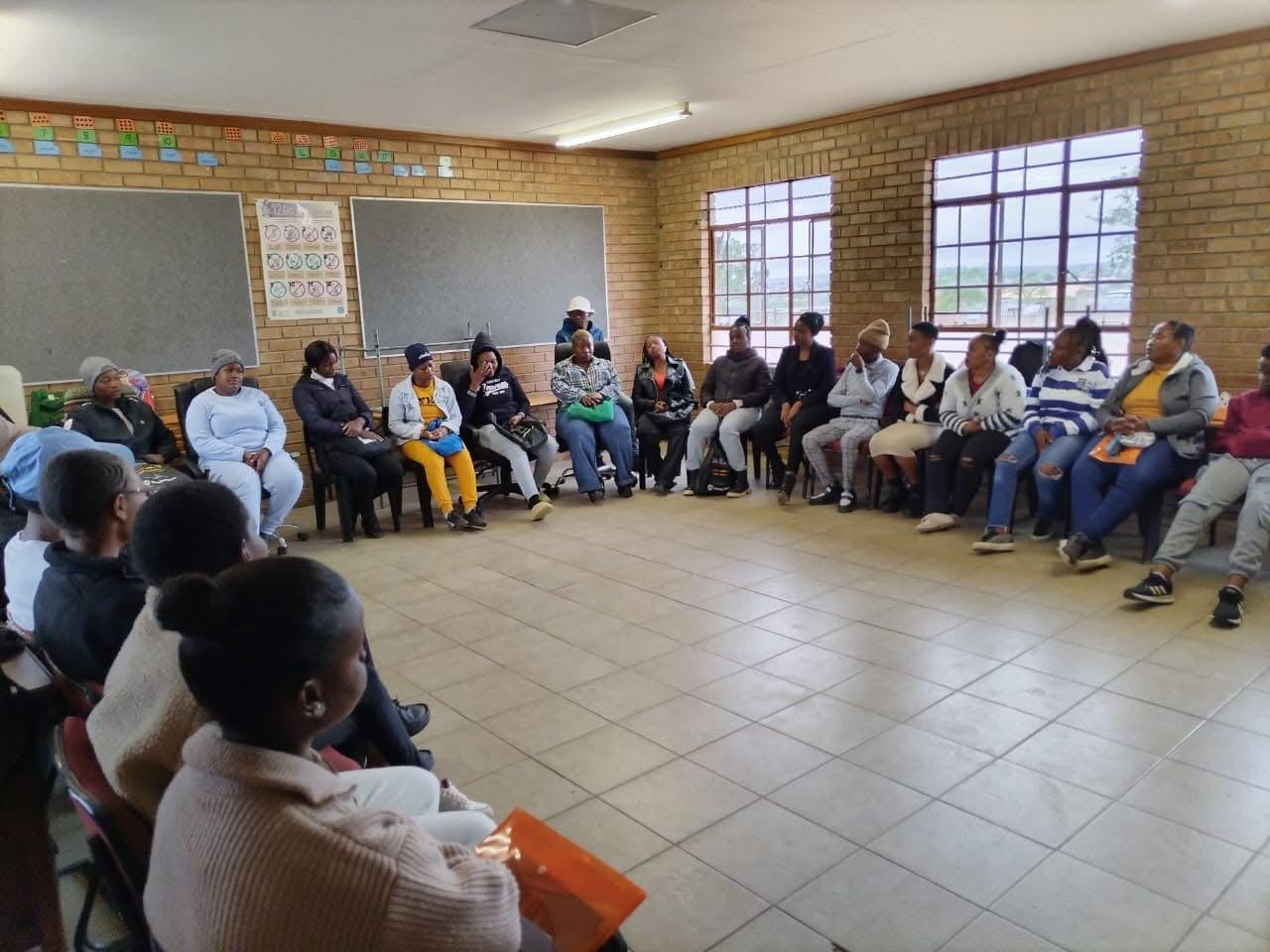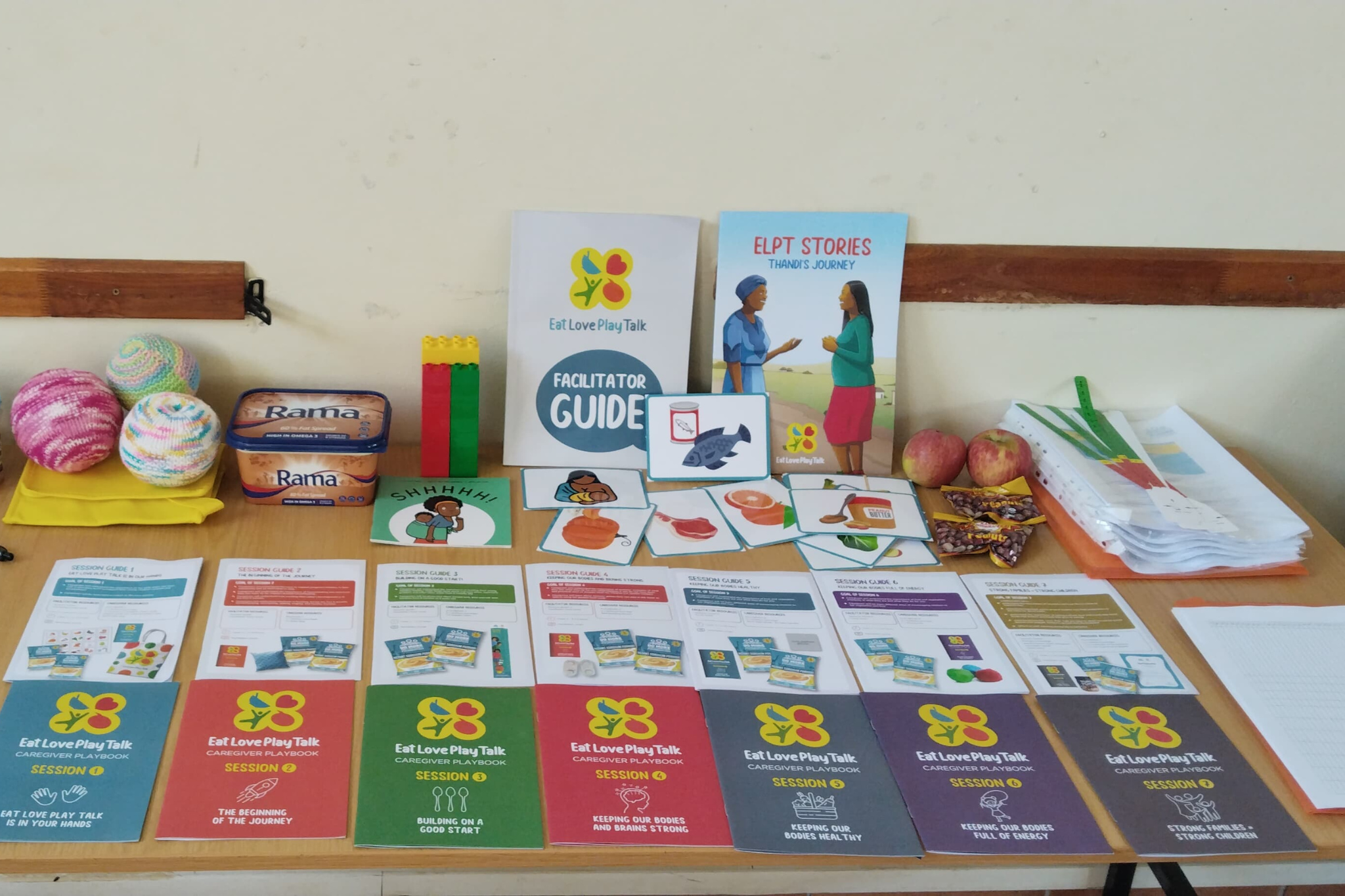Investing in Youth, Changing Communities: ELPT Nutrition Training with Seriti Institute in 2025
12 Aug 2025
In 2025, the DO MORE FOUNDATION, in partnership with Seriti Institute, continued to invest in skills that would address and support nutrition in South Africa by investing directly in young people as change makers. Through the foundation's flagship ‘Eat Love Play talk (ELPT)’ programme, an innovative initiative that blends early childhood development, public health education, and youth development. Eat Love Play Talk (ELPT) recognises that young people are powerful agents of change and equips them with practical knowledge and skills such as communication, empathy, and message development. By building their capacity to engage meaningfully with caregivers and communities, Eat Love Play Talk (ELPT) is nurturing a new generation of youth leaders who are driving positive health outcomes and reshaping the future of child nutrition from the ground up.
The DO MORE FOUNDATION, alongside Seriti Institute, delivered an impactful Eat Love Play Talk (ELPT) 3-day training session across 10 regions from rural to urban settings. Through this training 201 youth participants from the National Youth Service were equipped with knowledge, tools, and confidence to deliver nutrition messages and have conversations with local community members.

What is the National Youth Service (NYS)
The National Youth Service Programme is a Presidential Youth Employment Stimulus Initiative led by the National Youth Development Agency and implemented through multiple partners across the country. The Seriti Institute, has facilitated the programme with a focus on engaging young people in community service, strengthening local service delivery, and fostering social cohesion. The programme also aims to equip youth with skills and experience that enhance their employability and entrepreneurial prospects, while simultaneously benefiting communities.
Programme participants were involved in four main focus areas: Early Childhood Development (ECD), Nutrition, Eco projects, and Data Champions. Collaborations between implementing partners, such as those between Seriti Institute and the ELPT programme, have been instrumental in shaping conversations around the diverse career pathways available to young people in the ECD sector. These initiatives are helping to expand the narrative of ECD beyond centre-based learning and cognitive development, toward a more holistic understanding that includes health, nutrition, environment, and family support.
Areas where by the training was provided included: Bela-Bela, Bloemfontein, Botshabelo, Bushbuckridge, Deelpan, Johannesburg, Kimberly, Modimolle. Standerton and Sweetwaters/Impande – equipping 201 youth participants from the National Youth Service with knowledge, tools, and confidence to deliver nutrition messages and have conversations with local community members.
What did the programme entail?
Eat Love Play Talk (ELPT) is a community-based training programme combining education and practical facilitation techniques. Rooted in community engagement, the programme aims to promote habitat change in caregiving households through nutrition, hygiene, responsive parenting and play.
Each 3-day training session covered:
Nutrition leadership and mentorship
Pregnancy and breastfeeding support
Complementary feeding and meal planning
Hygiene and sanitation (WASH)
Growth monitoring tools and Road to Health book usage
Communication and community facilitation techniques
.jpeg)
Having fun and learning at the same time …
A hands-on, role–play experiential approach ensured the learning was immersive, interactive and relevant to the participants' everyday lives and context. Participants also practised how to teach and lead discussions, ensuring they could confidently speak about child health and nutrition in their communities.
Why does playful facilitation matter when it comes to facilitating youth training?
Playful facilitation is essential in youth training because it transforms training from a passive experience into an active, engaging, transforming journey. In terms of youth, this means learning facts and building skills, confidence, and self-awareness in a way that sticks. Through games, role-play and interactive methods, youth develop essential life skills such as communication, critical thinking, problem-solving and resilience. Play helps break down social barriers, promotes inclusion and supports diverse learning styles, making every participant feel seen and involved. Beyond academic or skill-based outcomes, playful facilitation fosters confidence, curiosity, collaboration and a genuine love of learning.
Participants shared several aspects they found most engaging during the training sessions:
- Team Collaboration: Many appreciated the opportunity to work in teams, noting that participation was easier and more enjoyable.
“I enjoyed the fact that we were working in teams – it made it easy for us to participate.”
- Interactive Role-play: The role-play segments were a favourite for some, offering a practical and engaging way to apply learning.
“I liked the part where we’d role-play: I enjoyed role-play because I was able to learn in a form of acting”.

What changes did we see?
To measure what the participants learned, tests were done before and after the training. In most areas, scores improved after the training. Bushbuckridge showed the most significant improvement, with scores going up by 28.8%. Modimolle followed with a 15.7% increase, and Bela-Bela improved by 13.9%. Botshabelo had the smallest improvement, with only a 1.9% increase, which may mean more support is needed there. Standerton, which had two training groups, showed a steady increase of 5.9%.
Across different regions, participants said they felt more confident after the training. In Deelpan, over 82% felt ready to talk about nutrition, and 65% felt confident speaking about child health. A participant shared that, after the training, they felt more capable of taking care of their child’s nutrition needs”. Kimberly had one of the highest confidence boosts, with more than 96% of participants saying they now felt confident talking about nutrition. Johannesburg also showed strong results, with 83% confident in sharing nutrition messages and 66% in discussing child health.
A key highlight for some of the participants was the hands-on learning about safe food handling. As one participant noted, “the food safety part really stood out. I can use that knowledge at home every day”. Another said, “I now understand how important hygiene is when preparing food, I didn’t know some of these things before.”
Others echoed similar sentiments, describing the training as both informative and directly applicable to their daily routines. Building this confidence was one of the main goals of the training, and the results show that the programme helped participants feel ready to support their communities.
Scaling wide through Nutrition Education
Scaling wide has enabled more individuals to access and benefit from the training. By scaling the training across different areas, more young people have been trained, developed skills, confidence, and passion needed to drive meaningful change within their communities.
Seriti is a non-profit organisation established in 2009. We build resilient communities, empowering futures. Its mission is to help vulnerable people gain self-sufficiency to create meaningful lives for themselves and their families. Its approach is collaborative; working with communities and social partners to help them achieve their goals. Seriti focuses on delivering innovative and sustainable solutions that positively impact socioeconomic outcomes
To fnd out more about Seriti, visit: https://seriti.org.za/